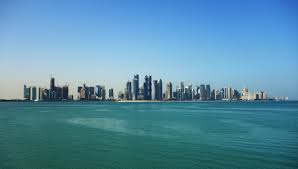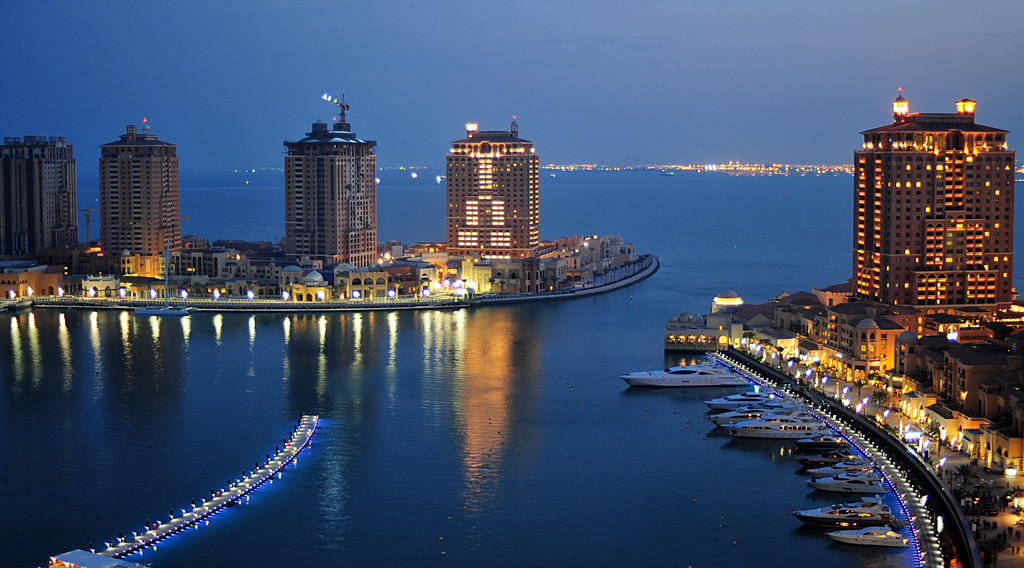There are few things in the world as universal as soccer. In terms of international reach, other sports pale in comparison. The beautiful game is played and watched by rich and poor countries alike, surpassing religious, ethnic, and cultural barriers in a way that other sports simply cannot. This universality is best displayed during the FIFA Word Cup – the most popular and widely viewed sporting event on the planet. Almost half the world (3.2 billion people) tuned in to watch the 2010 Word Cup final between Spain and the Netherlands. Hosting a World Cup, then, is an honor and a responsibility that should not be taken lightly. The 22 FIFA Executive Committee members that decide the host of the tournament hold an immense amount of influence. Alone, these 22 people have the power to instantly put a country at the center of the world stage, giving it a unique opportunity to showcase its culture and economy. The committee’s past two picks – Brazil and Russia – have been subject to controversy. But the choice to award Qatar the 2022 World Cup has easily been the most contentious and dumbfounding pick to date.
Almost a decade away, the 2022 World Cup is already a public relations disaster for a litany of reasons, both serious and trivial. The most significant of these is the widespread use of indentured migrant labor to build the infrastructure the tournament requires. Migrant workers operate in Qatar under something called the Kalafa (sponsorship) system, which binds each worker to a single employer. In practice, this system translates into modern day slavery, causing the International Trade Union Confederation to call Qatar a ‘slave state’. Recruiters approach men from poor surrounding regions, like Nepal, with promises of high wages and a temporary job in Qatar. Many mortgage their homes or take out loans in order to pay for recruitment fees and the trip to the Gulf.

Once there, their passports are taken. They work absurdly long shifts in the Qatari heat, for much less money than they were promised back home, or sometimes without any pay at all. Caught in a trap, they are unable to pay their debts, much less send money home to their families. Authorization from the employer is needed to change jobs or leave the country. Without a passport or any form of identification (many never receive the migrant worker ID that is promised to them upon arrival), workers essentially become undocumented aliens, without any rights. Several investigations by international media report that pay is often withheld for months, even years. Workers are put 15 or more to a small room. One investigation by The Guardian newspaper showed a camp in which 600 men shared two kitchens. “It’s infested with cockroaches, bugs, and flies,” said one worker “that is why people are getting sick.” This past summer, 44 Nepalese workers died on the job. Heart attacks, heat exhaustion, dehydration, untreated illness and malnutrition are among the main causes of death. The International Trade Union Confederation estimates that 4000 workers will die before the opening kick-off in 2022.
FIFA has washed its hands of the issue of forced labor: “The workers’ rights will be the responsibility for Qatar and the companies – many of them European companies – who work there,” said FIFA President Sepp Blatter. “It is not FIFA’s primary responsibility [to remedy the issue], but we cannot turn a blind eye. It is not a direct intervention from FIFA that can change things.” Blatter has ruled out the possibility of taking the tournament away from the Arab nation, arguing there is “plenty of time” to deal with the problem.
Although the treatment of migrant workers has been the most dominant criticism of FIFA’s choice of Qatar, it is by no means the only one. The Qatari government has also told gay people not to attend the games. It was recently announced that visitors would be subjected to a ‘medical gay test’ in order to prevent homosexual fans from entering any of the Gulf Cooperation States. FIFA has paid lip service to gay rights groups that have criticized Qatar, attesting that there will be ‘zero tolerance’ for racial or sexual discrimination in the World Cup. It was no consolation – a few days later Blatter told gay fans to “refrain from sexual activities” if they want to attend the tournament. In other words, gay people can go to the World Cup, but they can’t be gay while they are there.
And then come the issues that would not be considered so trivial had they not been overshadowed by blatant human rights violations. First is the fact that events like the World Cup imply the consumption of copious amounts of alcohol. Qatar happens to be a dry country, except for a few areas destined for foreigners. The Qatari government has said there will be restricted areas, closed to citizens of the country, where tourists will be able to booze up. Second is the fact that the World Cup is traditionally held in the summer off-season, when the average temperature in Qatar sits around 110 degrees. Apparently this factor was not considered when Qatar’s bid was being assessed. After an Ecuadorian player died in the opening game of the Qatari soccer league this July, FIFA realized the temperature might be an issue. Blatter is now in a scuffle to try and delay the games to the winter. Continental and national soccer federations are pushing back aggressively, arguing this would disrupt soccer calendars worldwide.
No matter which way you look at it, Qatar was clearly a terrible choice by FIFA, especially considering that Japan, South Korea, Australia, and the United States were all in the running to host. The list of reasons why Qatar should be the last place to host a World Cup seems infinite. Yet, in the opening bid round, when all 5 countries were still in the running, Qatar received 11 out of the total 22 votes. Unsurprisingly, considering FIFA’s reputation for corruption, accusations of foul play quickly arose. Phaedra Al Majid, a member of Qatar 2022 bidding committee, told the media that three members of FIFA’s Executive Committee received $1.5 million each in return for backing Qatar’s bid. Majid has since backtracked, alleging she was a disgruntled worker in search for revenge. A leaked email by FIFA Executive Secretary Jerome Valcke spoke of the 2022 World Cup ‘being bought’. Even Sepp Blatter himself indicated in an interview that Qatar won the bid due to political influence saying, “There was definitely direct political influence. European leaders recommended to its voting members to vote for Qatar, because of major economic interests in the country.”
The end result is that Qatar will have an opportunity in 2022 to showcase its country to the world in the most festive of manners. If Qatar hosts a successful tournament, the country’s brand will be greatly improved. Hosting a successful World Cup would legitimize Qatar in a way that no other international event could. It all rests of FIFA’s shoulders. The possibility of a re-vote seems unlikely. The possibility of a boycott by other countries seems equally unlikely, considering the disadvantages of poking the oil rich nation. In nine years, billions of people will huddle around a TV with their friends and watch the opening game of the 2022 World Cup. The real question is: How many fans will truly understand the cost of that moment?

FIFA 2022 problems